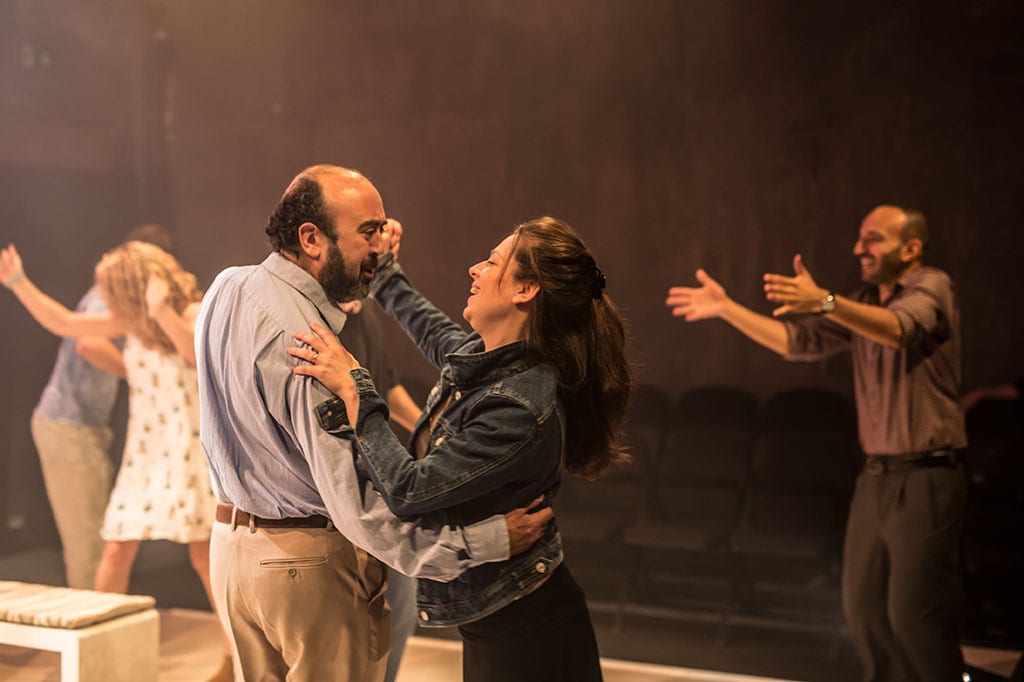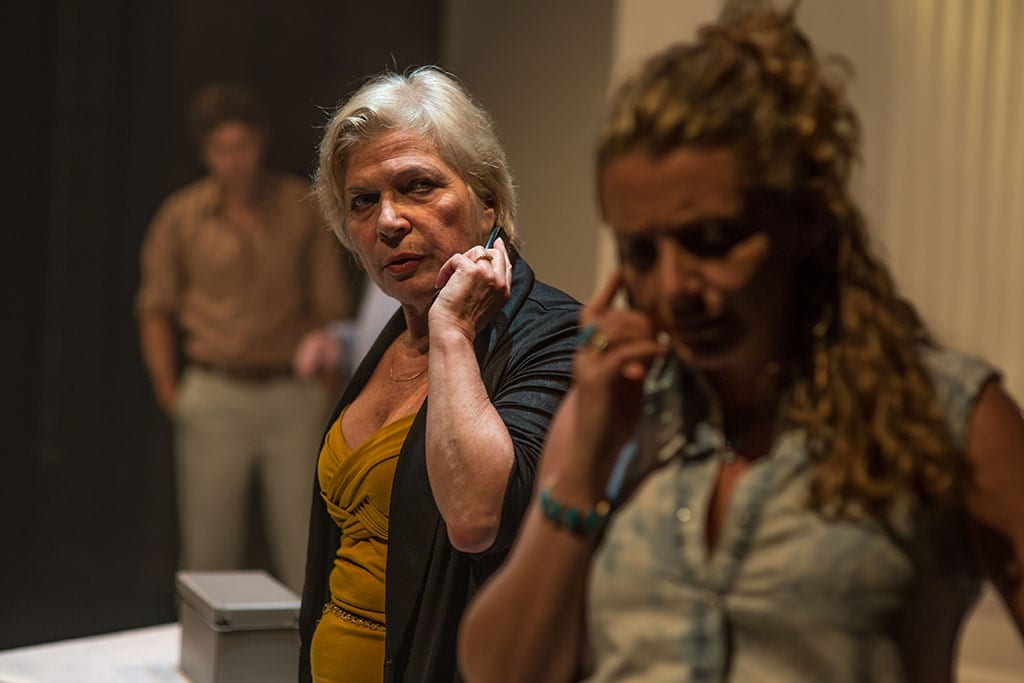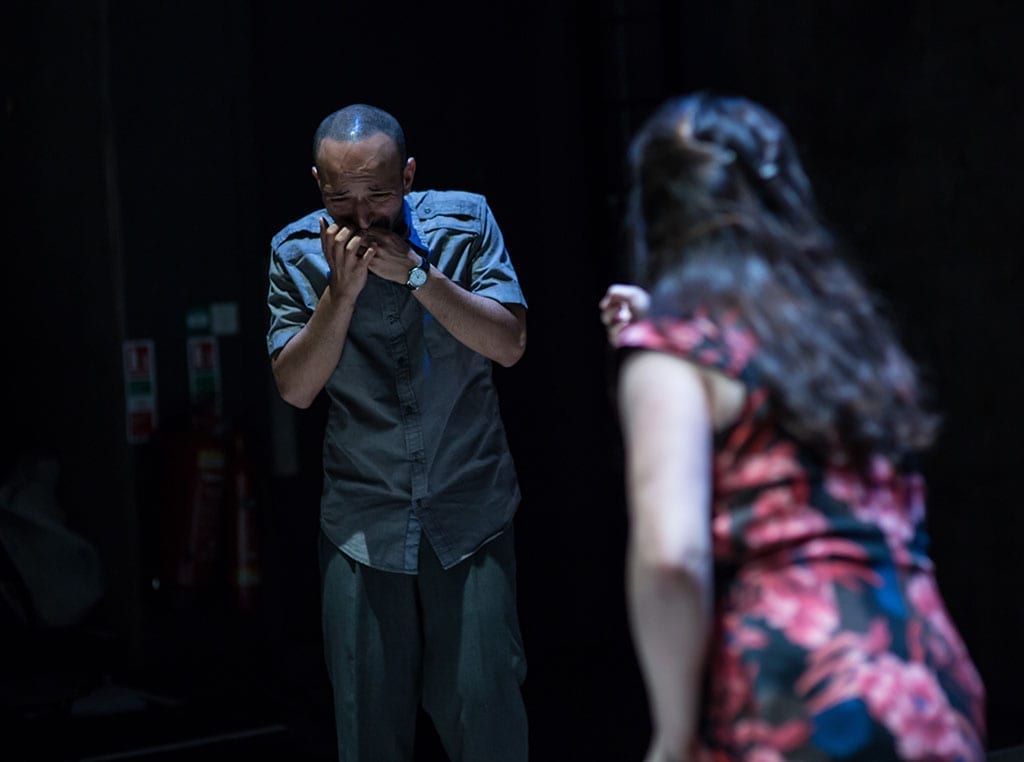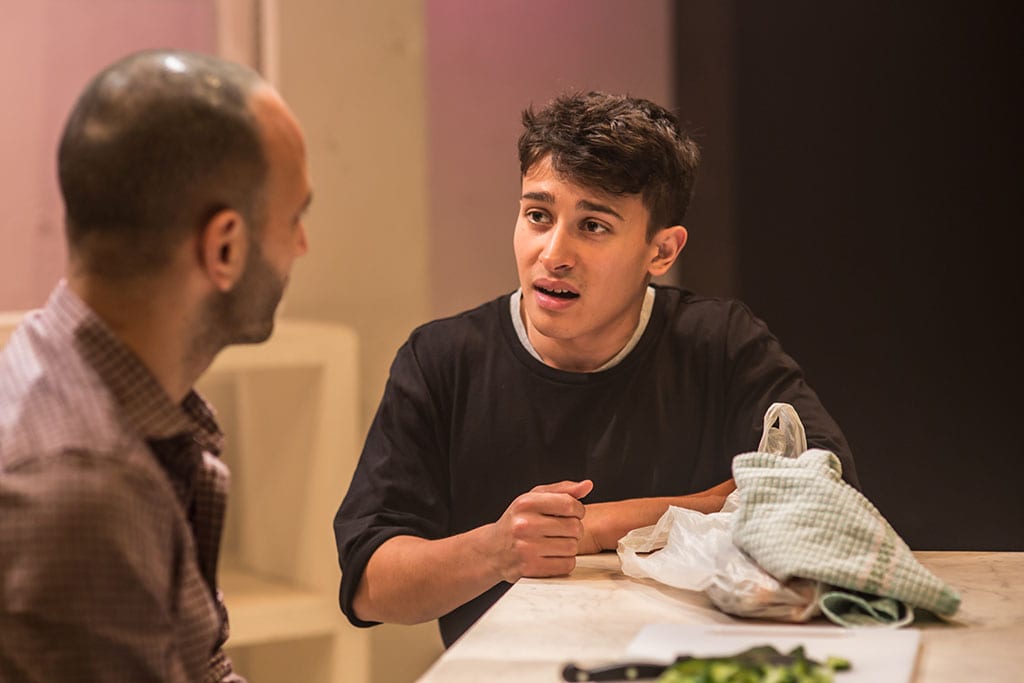In Crossing Jerusalem the action takes place over a 24hr period, as the Kaufmann family – as dysfunctional and secretive as they come – crosses reluctantly the city for a birthday celebration, at the wake of the second Intifada in 2002. Just before 38 year old army reservist son Gideon goes off for a stint in the Occupied Territories.
The choice of restaurant proves to be an unfortunate one, since Yusuf the Palestinian dishwasher, has a political activist for a brother and is the son of a former employee of the Kaufmann’s dismissed for stealing. In the powder keg that is Israel Julia Pascal has created a play centered around ‘the everyday lives of Israelis and Arabs during the second Intifada’.
Varda the mother, a high-powered property dealer, is making big money dealing in properties of questionable provenance, and is constantly disappointed in the people around her; her husband, a Russian-Jew both tragic and a blundering fool; her daughter-in-law; her daughter, in her 30s and still unmarried and to top it all, volunteering in an integrated school; only her son appears to be an exception, but he turns out wants to be a refusenik, to reject his army call-up. She is outraged at the suicide bombings because Israel was supposed to be a safe haven for Jews and is curiously tight-lipped about her past.
Yusuf on the other hand, has a dead-end job in a restaurant, a sick father and a younger brother, who throws stones at Israeli soldiers and thinks him a sell-out. His demands for reparations on behalf of his father fall on deaf ears.
Pascal is obviously concerned with showing as many aspects of the crisis as possible, and each of her characters has been created with that in mind. Just as Yusuf, unable to cross Jerusalem on his wedding-day because of a roadblock, and his brother embody different aspects of Palestinian yoke, so do Varda and her family epitomize a generational conflict within the Israeli society; where Zionism and Israeli government policy are questioned by the younger generation and defended by the older.
Many aspects of the Israeli-Palestinian conflict are either glossed over or not mentioned at all, but it can be argued that an issue so complicated and divisive cannot be fully presented in a play. It would have become too convoluted. Unfortunately, the play despite its noble intentions fails to go deep into the characters and the issues it does present. A significant part of the play is spent on trite bickering and implausible romance and the occasionally exaggerated acting proves counter-intuitive. A certainly dissecting play that could have worked better.





